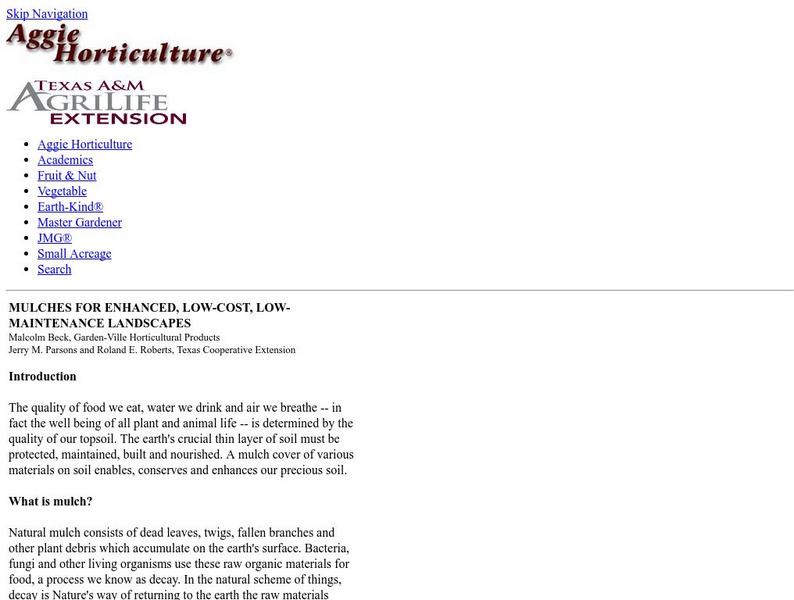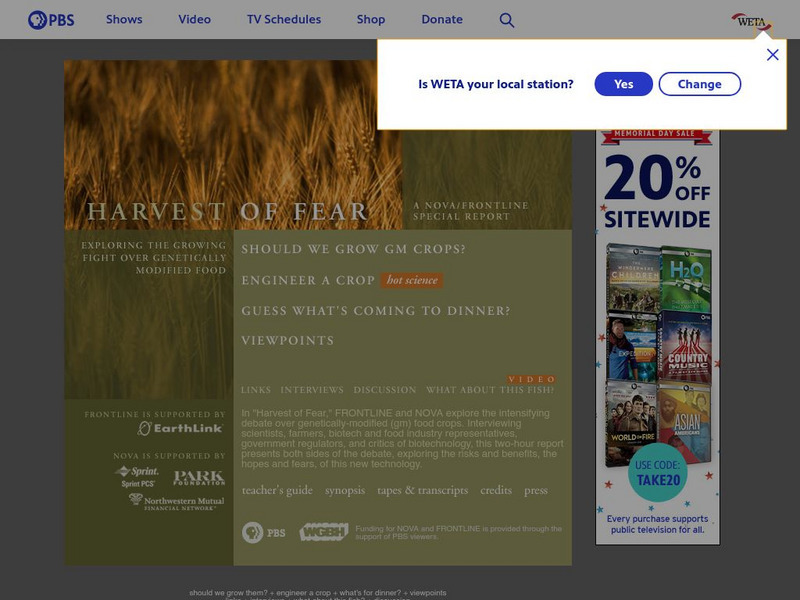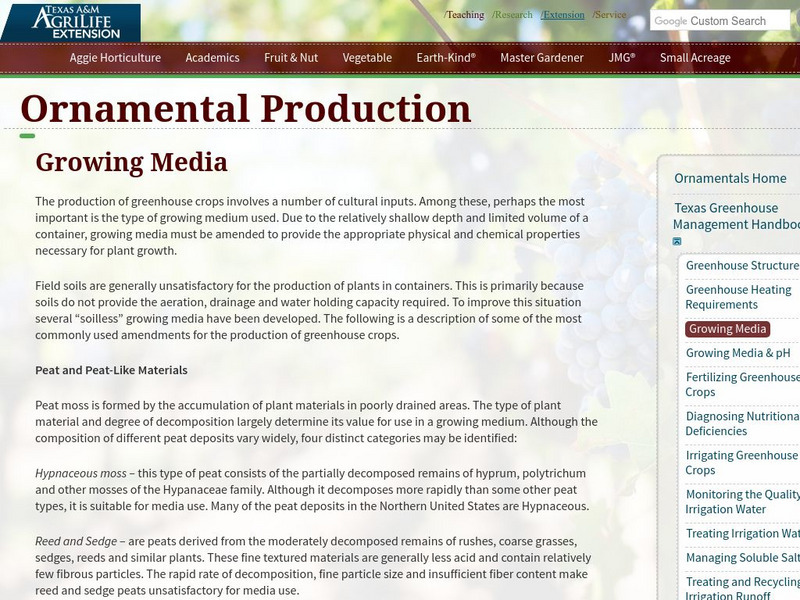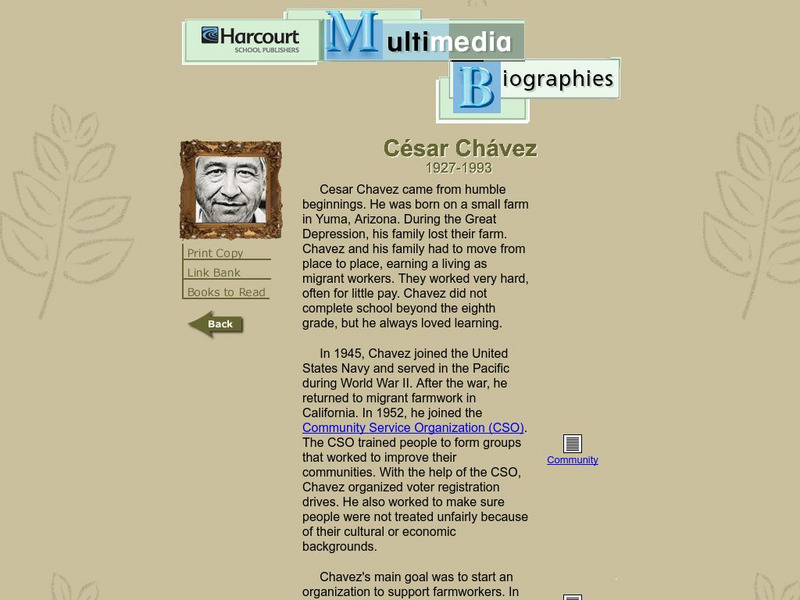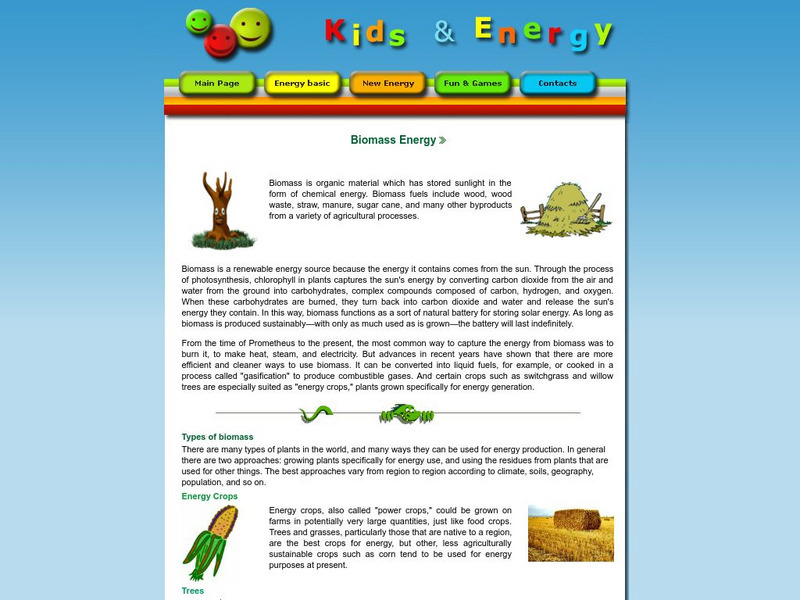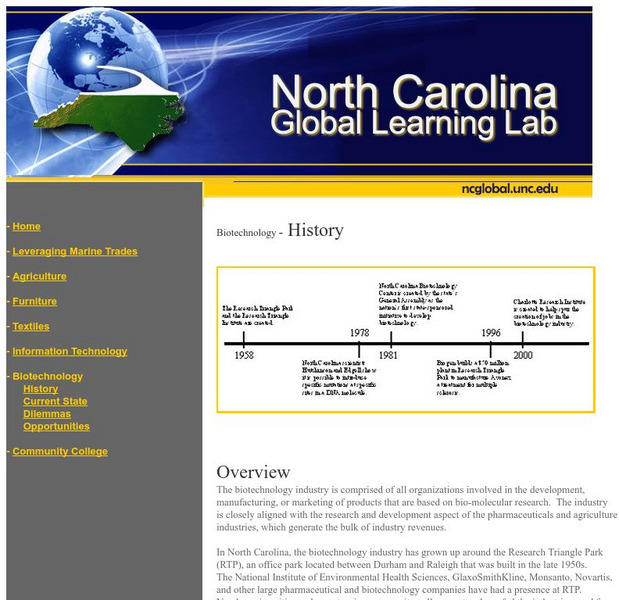Other
Ifad: Enabling Poor Rural People to Overcome Poverty
IFAD is a specialized agency of the United Nations. Its mission is to alleviate poverty in the world's rural areas by helping them gain access to financial services, markets, technology, and resources.
Texas A&M University
Texas A&m University: Mulches for Water Conservation
The quality of the food we eat and the water we drink depends upon the quality of our topsoil. By putting a mulch cover on our topsoil, we help to protect this quality. Find out exactly what mulch is, what it can do, and how to properly...
University of Wisconsin
Univ. Of Wisconsin: Co Ops and You
From the University of Wisconsin's Center for Cooperatives (UWCC), this Web site for high school students and young adults offers learning modules on a number of cooperative issues as well as resources on scholarships for young...
PBS
Frontline and Nova: Harvest of Fear
Review the risks, benefits, hopes, and fears associated with biotechnology and bioengineered food crops. Find in-depth interviews with genetic scientists, food industry representatives, farmers, and critics of biotechnology. Accompanying...
Other
The Role of the Federated Woman's Institute in Rural Canada [Pdf]
The founding and growth of the Federated Woman's Institutes throughout Canada is profiled. Improving women's conditions in rural areas, early ergonomics child safety,'well baby' programs, funding school programs, and many other community...
Environmental Education for Kids
Eek!: Nature's Recyclers Coloring Book
Did you know that nature has its own clean-up crew and recycling staff? Yeah, there aremany plants and animals that help recycle natural materials in our environment. They take deadmaterials and turn them back into rich soil. Use this...
Carnegie Museum of Natural History
Carnegie Museum of Natural History: The Iroquois of the Northeast
This site provides a brief look at the history of the Iroquois. The site has information about food, handwork, survival, and modern life.
Texas A&M University
Aggie Horticulture Network: Composting for Kids
Use this resource to learn about how we make compost and how we use it to grow gardens.
Texas A&M University
Texas Greenhouse Management: Handbook: Growing Media
An extensive list of growing media from the Texas A&M Dept. of Horticulture.
Houghton Mifflin Harcourt
Harcourt: Biographies: Cesar Chavez
Learn about this leader who helped bring many important changes for farm workers in the U.S. Following the peaceful examples of King and Ghandi, Cesar Chavez helped much needed improvements take place.
Library of Congress
Loc: America's Story: Cesar Chavez
Learn about Cesar Chavez (1927-1993), the Mexican American labor activist and leader of the United Farm Workers. During the 20th century, he was a leading voice for migrant farm workers.
Energy for Sustainable Development
Kids and Energy: Biomass Energy
Biomass is organic material which has stored sunlight in the form of chemical energy. Biomass fuels include wood, wood waste, straw, manure, sugar cane, and many other byproducts from a variety of agricultural processes.
University of North Carolina
University of North Carolina: History of Biotechnology in North Carolina
The biotechnology industry is comprised of all organizations involved in the development, manufacturing, or marketing of products that are based on bio-molecular research. The industry is closely aligned with the research and development...
Curated OER
Educational Technology Clearinghouse: Maps Etc: Arizona, 1904
A map of Arizona from 1904. "Arizona was organized as a territory in 1863. Area, 112,290 square miles; population, 122,212. Of these 26,480 are Indians. About one-third of the white population are foreign born. Chiefly a mining Territory...
Curated OER
Educational Technology Clearinghouse: Maps Etc: Kansas, 1904
A map from 1904 of Kansas showing the State capital of Topeka, major cities and towns, railroads, and rivers. "Kansas (Garden of the West) - Organized as a Territory in 1854; made a State in 1861. Area, 82,080 square miles; population,...
Curated OER
Educational Technology Clearinghouse: Maps Etc: Nebraska, 1904
A map from 1904 of Nebraska showing the capital of Lincoln, major cities and towns, railroads, and rivers. "Nebraska - Territory organized in 1854; admitted to statehood in 1867. Area, 15,378 square miles, and population 1,067,000....
Curated OER
Educational Technology Clearinghouse: Maps Etc: Utah, 1904
A map from 1904 of Utah showing the capital at Salt Lake City, counties and county seats, principal cities and towns, railroads, mountains, rivers, and the Salt Lake desert region. "Utah was organized as a Territory in 1850. Area, 84,970...



